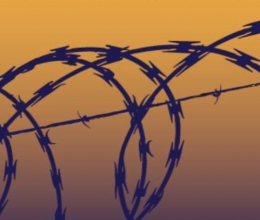
TORNILLO, Texas — The last child has left the Tornillo tent camp, which had been used to detain thousands of migrant children near El Paso, Texas since its opening in June of last year. This news comes one day after President Donald Trump visited the Texas-Mexico Border to continue advocating for his immigration policies. While the closure of the facility is welcome news to advocates for the rights of immigrants, the Trump Administration is set to add 1,000 beds to another facility in Florida and has left in place policies that will continue to force thousands of children to remain in detention for unnecessarily long periods.
Andre Segura, legal director for the ACLU of Texas, had this reaction:
“The tent city in Tornillo was among the most visible monuments to the Trump’s inhumane immigration policies. We observed children languishing for months at this makeshift detention camp in the desert while our government delayed their placement in homes ready to welcome them. But closing this facility in no way stops the Trump administration from setting up similar facilities elsewhere in the country. Rather than detaining children, the Trump administration should focus its efforts on ensuring that migrant children are treated fairly and placed with family or sponsors as quickly as possible.”
Cynthia Pompa, advocacy manager of the ACLU Border Right Center, added:
“For months, members of our border community have made it clear they reject the detention of migrant children and favor humane solutions which keep children out of federal detention. Dismantling the Tornillo tent city does nothing to address the policy decisions that lead to the Trump Administration’s prolonged detention of thousands of children in the desert along our border. Namely, the administration continues to share with ICE the information of potential sponsors and household members, who come forward to care for detained unaccompanied children. This approach is central to the administration’s cruel effort to terrorize migrant communities and inflicts lasting trauma on children.”







